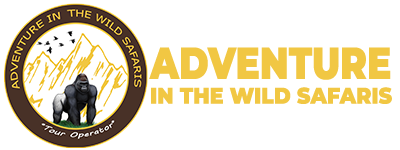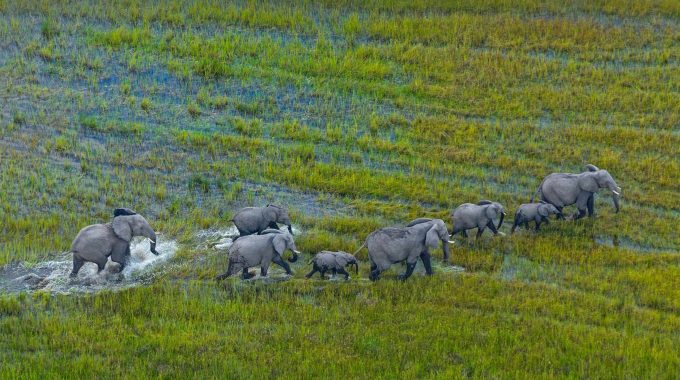What is the major problem in the Okavango Delta? The Okavango Delta faces several environmental and socio-economic challenges…
Who lives in the Okavango Delta?
Who lives in the Okavango Delta? The Okavango Delta is not only home to a vast array of wildlife, but also to several indigenous human communities who have lived in the region for centuries. These communities have a deep connection to the land and the environment, and their lifestyles are intertwined with the rhythms of the delta’s seasonal flooding and abundant natural resources. Here’s a look at the people who live in and around the Okavango Delta:

-
The San (Bushmen)
The San people, also known as the Bushmen, are among the oldest inhabitants of southern Africa and have lived in the Okavango Delta region for thousands of years. The San traditionally lived as hunter-gatherers, using their extensive knowledge of the environment to hunt wildlife and gather plant foods. Their cultural practices and spiritual beliefs are deeply rooted in their connection to the land and its ecosystems.
- Traditional Lifestyle: The San are renowned for their skills in tracking and hunting, using bow and arrow to hunt animals such as antelope. They also gathered wild fruits, tubers, and other edible plants. Their knowledge of the natural world, including animal behavior and medicinal plants, is passed down through generations.
- Today: Many San communities no longer live in the traditional nomadic way, as their lifestyle has been affected by land dispossession, colonialism, and modern-day pressures. Some continue to live in the Okavango region, practicing a more sedentary lifestyle, but they still maintain close ties to their traditional culture and knowledge of the environment. Others have integrated into modern communities or work in eco-tourism and conservation efforts in the delta.
-
The BaYei People
The BaYei (also known as the BaYei of the Okavango or Bayei) are an ethnic group native to the Okavango Delta, particularly in the areas around Moremi Game Reserve and Chief’s Island. They are one of the largest ethnic groups in the region and have lived in the delta for centuries.
- Traditional Lifestyle: Historically, the BaYei people were known for their skills in fishing, as well as farming and cattle herding. They used the delta’s waterways for fishing and transport, using traditional boats called mokoros (dugout canoes), which are still an iconic part of the delta’s culture.
- Today: Many BaYei still rely on the Okavango Delta for their livelihoods, engaging in subsistence farming, fishing, and cattle herding. They also participate in the eco-tourism industry, with some community members working as guides and others running small-scale lodges or guesthouses. The BaYei have been actively involved in efforts to protect the delta’s environment, working alongside conservation organizations and the government to balance development and conservation.
-
The Hambukushu People
The Hambukushu are another ethnic group living in the Okavango region. They are traditionally semi-nomadic and have historically lived along the banks of the Okavango River and its tributaries.
- Traditional Lifestyle: The Hambukushu were primarily fishermen and agriculturalists, using the river for fishing and the surrounding land for farming. They also raised cattle and traded goods with neighboring groups.
- Today: Like the BaYei, many Hambukushu people have adapted to modern lifestyles, with some living in towns and villages outside the delta. Others continue to rely on the resources of the delta, and some are involved in the eco-tourism industry, particularly in guiding and hospitality.
-
The Herero People
The Herero people are an ethnic group who historically lived in the northwestern part of Botswana, around the Okavango Delta. They are known for their distinctive cultural practices and their cattle-herding lifestyle.
- Traditional Lifestyle: The Herero were traditionally pastoralists, raising cattle and using them as an essential part of their culture and economy. The cattle are integral to their social and religious rituals.
- Today: While many Herero people now live in urban areas or are engaged in different forms of livelihood, some still maintain herding practices in rural areas around the Okavango Delta. They are also part of Botswana’s diverse cultural fabric, contributing to the country’s heritage.
-
The Tswana People
The Tswana people are the largest ethnic group in Botswana and have historically lived across the country, including areas near the Okavango Delta. While they are more prevalent in the central and southern parts of Botswana, some Tswana communities have settled near the delta’s edge, particularly in towns such as Maun, which is the gateway to the delta.
- Traditional Lifestyle: Traditionally, the Tswana people were cattle herders and agriculturalists, cultivating crops like millet and sorghum. Their society is built around clan-based systems, with strong ties to land and community.
- Today: Many Tswana people now live in urban areas or are involved in a wide range of industries, including tourism and business. In the Okavango region, some Tswana communities are also involved in eco-tourism, working as guides, lodge staff, or entrepreneurs.
-
The Wayeyi People
The Wayeyi (sometimes called Yei) are a small ethnic group who traditionally lived in the northern part of Botswana, near the Okavango River.
- Traditional Lifestyle: Historically, the Wayeyi were primarily fishermen and hunters, living close to the water and relying on the delta’s resources. They also engaged in some farming and livestock raising.
- Today: Many Wayeyi people now live in villages around the Okavango Delta, with some continuing to fish and farm while others participate in the tourism industry.
-
Tourism Workers and Conservationists
In addition to the indigenous communities, the Okavango Delta is home to a growing number of people who work in the tourism and conservation sectors. These include guides, lodge staff, rangers, and park managers. Tourism plays a crucial role in the region’s economy, providing jobs and funding for conservation efforts.
- Tourism Industry: The rise of eco-tourism has created job opportunities for local people in guiding, hospitality, transport, and conservation efforts. Many individuals from the indigenous communities, such as the BaYei and San, work as guides or are involved in running sustainable tourism businesses.
- Conservation Efforts: There are also many people working to preserve the Okavango Delta’s biodiversity, including park rangers, conservation scientists, and environmental activists, many of whom live in or near the delta.
-
Indigenous Knowledge and Cultural Practices
The people of the Okavango Delta hold a deep spiritual connection to the land. Many of the indigenous communities practice traditional rituals, songs, and dances that reflect their reverence for nature and the animals that live in the delta. For example, some groups believe in ancestral spirits that are connected to particular parts of the landscape, and these beliefs influence their practices around land use, hunting, and water management.
In Summary:
The Okavango Delta is home to several indigenous groups, including the San (Bushmen), BaYei, Hambukushu, Herero, Tswana, and Wayeyi, each with their unique cultures, traditions, and ways of life. These communities have lived in harmony with the delta for centuries, utilizing its resources for fishing, farming, livestock herding, and hunting. In recent times, many have adapted to modern lifestyles, engaging in eco-tourism, conservation, and other economic activities that help preserve the delta’s unique ecosystem.



